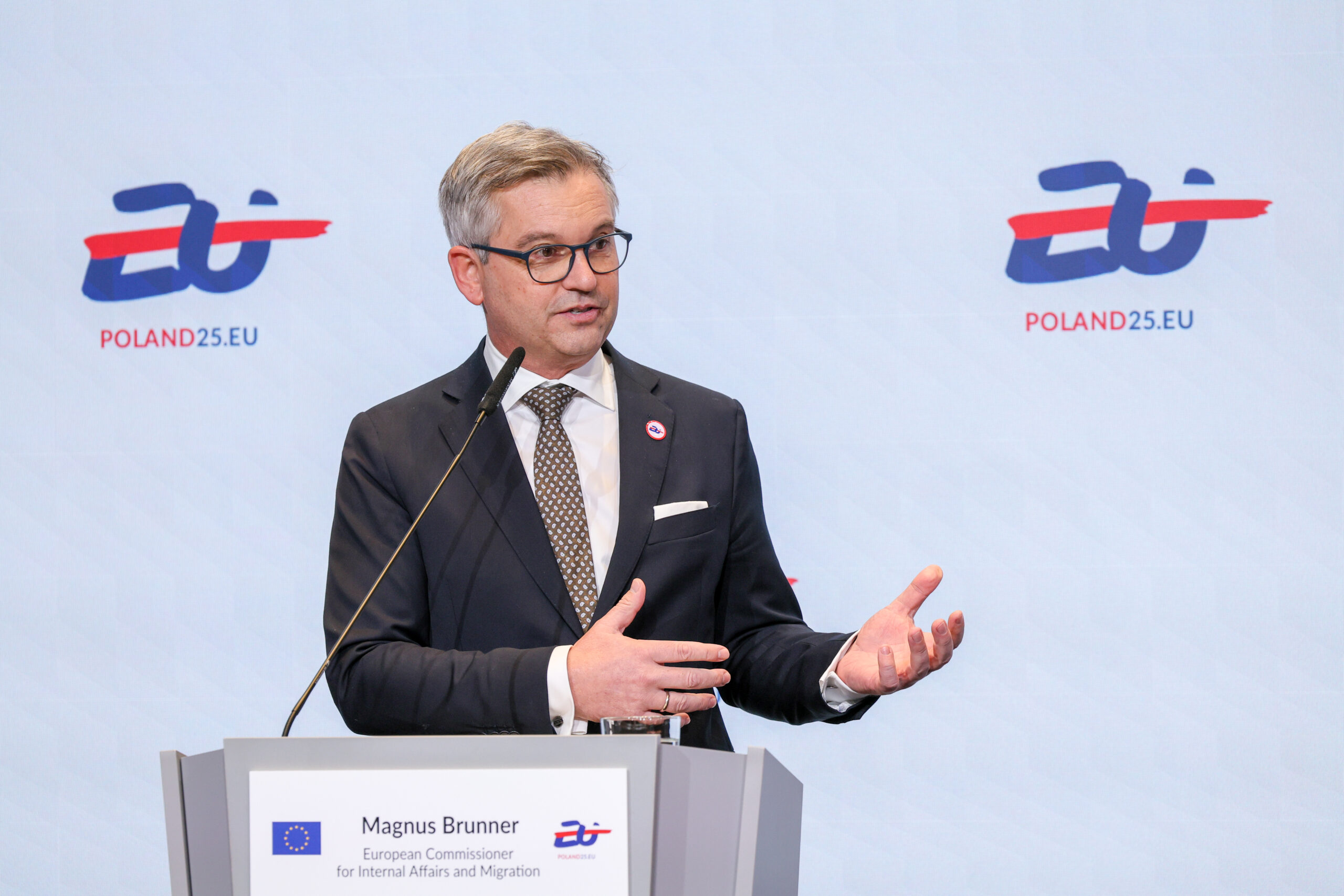Brussels – Planned return hubs outside European territory may be tolerable but must not be “rights-free” zones. In the position paper released today (Feb. 6) by the EU Agency for Fundamental Rights (FRA), the confirmation of the debate development on “return hubs”: Having defeated the resistance of the most sceptical, the new clampdown on speeding up the repatriation of migrants who are denied reception will take place. It remains to be seen under what conditions because—as the agency warns—”the creation of return hubs would only be compatible with EU law if accompanied by clear and robust guarantees.”
The European Commission’s proposal is imminent, expected to be published as early as the end of February. Last week, at the informal meeting between the interior ministers of member countries in Warsaw, according to minutes reported by Euronews, the European Commissioner for Home Affairs and Migration, Magnus Brunner, proposed “stricter rules on detention” and the “possibility of developing hubs for repatriation.” The idea—which has been circulating in Brussels for several months—has reportedly been welcomed and described “as a possible deterrent to irregular migration” by several capitals. Only Portugal and Spain reportedly raised doubts from a legal and operational point of view. At the same time, Ireland and Belgium stressed “the need for the measures to be realistic and feasible and to respect fundamental rights.” Two days ago, on Feb. 4, Brunner met with several NGOs to discuss the revision of EU return rules. On the sidelines of the discussion, he said, “Your insights are key to shaping a fair and effective migration policy.”

Return hubs are not to be confused with the two Italian centres in Albania, whose goal is not to outsource return procedures but to process asylum applications. In essence, the “return hubs” would temporarily house migrants who have an order to leave the EU or whose applications for asylum have been rejected. The migrant persons would be held in the non-EU centres until the member states or the European Border and Coast Guard Agency (Frontex) can proceed with their return to their country of origin. In this way, the EU would solve the problem of effective returns: although on the rise, today, member states manage to transfer only about a quarter of the people who receive expulsion orders.
In their voracious pursuit of “innovative solutions” to manage migration, the EU and member states “should not forget their obligations to protect people’s lives and their rights,” FRA Director Sirpa Rautio reminded. Even if these hubs were located outside the EU, “the fundamental rights protections established by EU law still apply,” FRA points out: “Member States and/or Frontex would be responsible for rights violations at the hubs and during transfers.”
The conditions dictated by EU human rights experts are different. First, legal decisions should “be based on an individual assessment.” Second, “children should never be sent to repatriation hubs“, and people in vulnerable situations, including the elderly and people with disabilities, “will require special attention, making their lawful transfer to a repatriation centre unlikely and difficult.” Migrants interned in such centres will have to be guaranteed ” minimum standards for conditions and lawful treatment.” To reduce the risk of human rights violations, it will be necessary to introduce “effective and independent human rights monitoring mechanisms.”
In addition, the Fundamental Rights Agency made it clear that if states were to use European funds to cover the costs of the hubs, then the specific fundamental rights guarantees provided by the EU would apply to those funds. Member states “will have to ensure a legally binding agreement with any non-EU country hosting a hub,” which respects the rights enshrined in European law and clarifies “the modalities of transfer to the hub and from the hub to the country of origin.”
English version by the Translation Service of Withub








